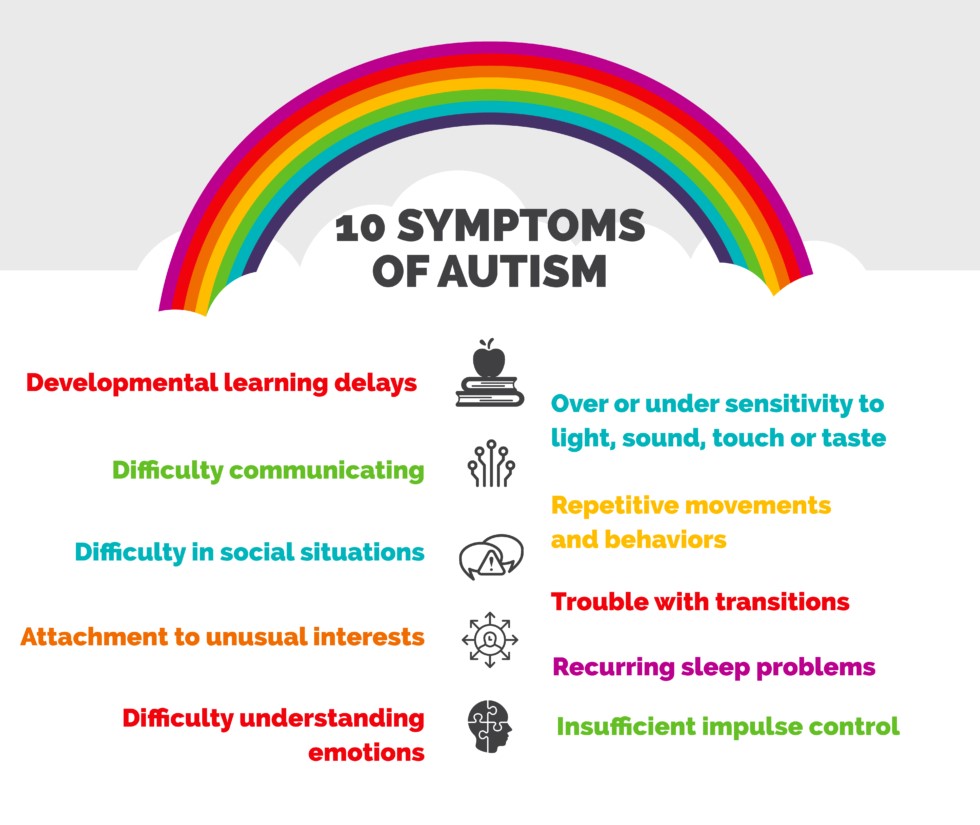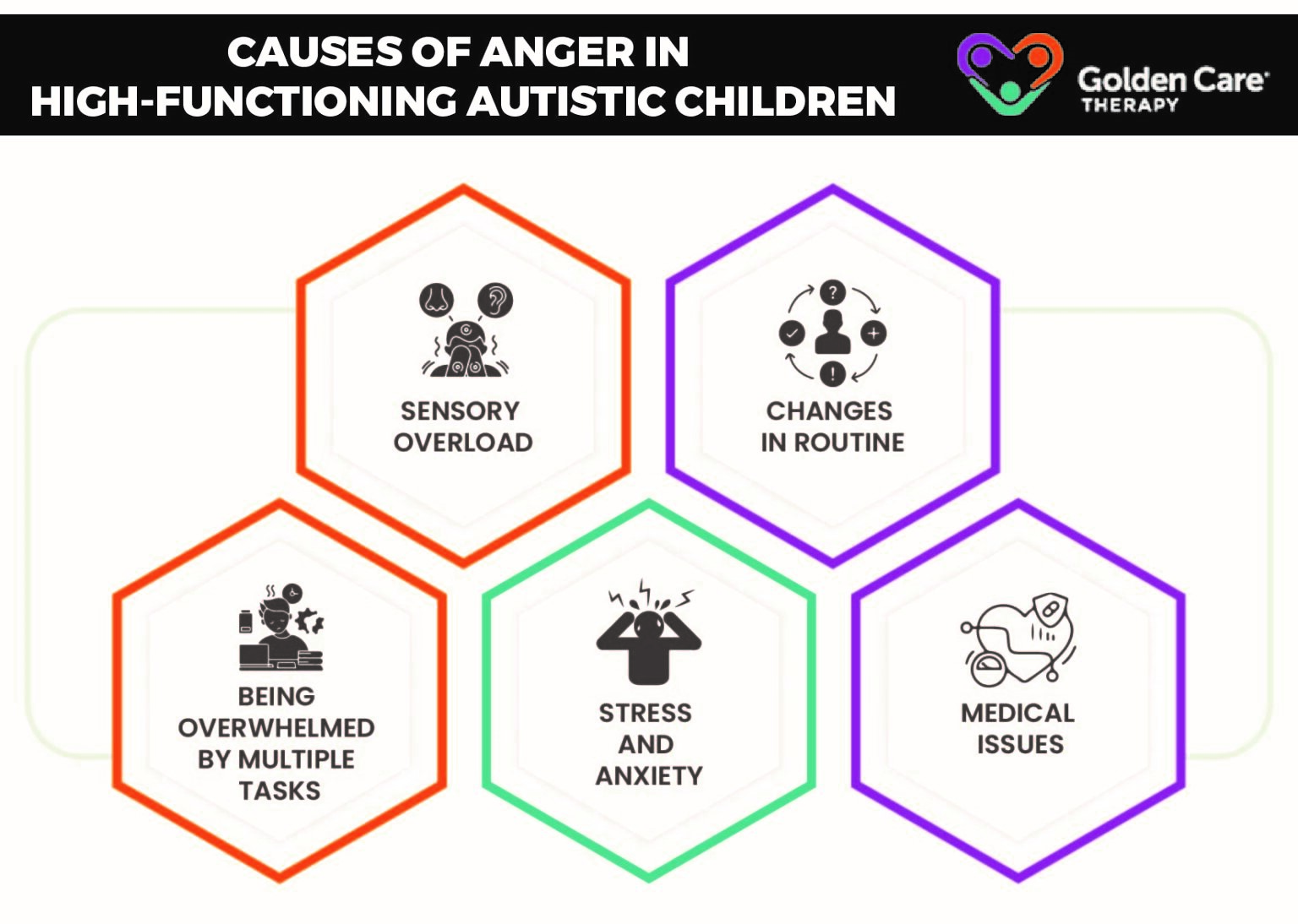
Autism, also known as Autism Spectrum Disorder (ASD), is a neurodevelopmental disorder that affects communication, social interaction, and behavior. Students with autism may have difficulty expressing their emotions, including anger, which can lead to challenging behaviors. Therefore, teachers and parents need to teach anger management skills to students with autism. But before that let us first understand some of the common traits that autistic children might have.
Some Common Challenges Faced By Children With Autism

Take a look at some of the most common issues faced by students with autism:
7 Ways By Which You Can Help Them Deal With Anger

Here are some techniques to deal with anger issues of autistic children in a classroom:
The first step in managing anger is to identify the triggers that lead to it. Students with autism may have difficulty recognizing and articulating their emotions, so it is important to teach them to identify the events or situations that make them feel angry.
For example, a student may become upset when there is a change in their routine or when they are asked to do something they do not want to do. Once the trigger is identified, teachers and parents can work with the student to find ways to manage their emotions.
Once the student has identified their triggers, it is important to teach them coping strategies to manage their anger. These strategies should be individualized based on the student's needs and preferences.
Some effective coping strategies for students with autism include deep breathing, counting to 10, taking a break, and using a sensory tool such as a stress ball or fidget toy. Teachers and parents should work with the student to determine which coping strategies work best for them and encourage them to use these strategies when they feel angry.
Students with autism often have a strong visual memory, so using visual aids can help teach anger management skills. Teachers and parents can create visual schedules or cue cards that remind the student of their coping strategies or provide them with a visual representation of their emotions.
For example, a cue card with a picture of a stop sign can remind the student to take a break when they feel angry.
Students with autism often have difficulty with social interaction, which can lead to frustration and anger. Teaching social skills such as turn-taking, sharing, and compromising can help the student to better understand and manage their emotions.
Role-playing activities can help practice these social skills in a safe and supportive environment.
Positive reinforcement is an effective way to encourage desired behavior in students with autism. When the student demonstrates appropriate anger management skills, teachers and parents should praise and reward them.
Rewards can be as simple as verbal praise, stickers, or preferred activity. Positive reinforcement can help the student to feel more confident and motivated to continue using their coping strategies.
In some cases, students with autism may become physically aggressive when they feel angry. It is important to develop a safety plan in collaboration with the student, their parents, and school staff to ensure the safety of everyone involved.
The safety plan should include clear guidelines for de-escalating the situation and contacting emergency services if necessary.
Students with autism may benefit from having a designated safe space where they can go when they feel overwhelmed or upset. This space should be quiet, calm, and free from distractions.
Teachers and parents can work with the student to create a safe space that meets their individual needs and preferences.
Create A Happy Child
Helping autistic children manage anger is no easy feat. Thus, to help you out we have curated a list of strategies that might make your job easier. Alternatively, you can also pursue online courses on Autism to understand other behavioural challenges in students with autism and guide them through exercises and activities to improve their future. Give these anxious children something to focus on other that stress and anxiety and build a happy individual.
Get In Touch
UK – Registered OfficeAsian College Of Teachers Ltd (UK)
27, Old Gloucester Street, London – WC1N 3AX, UK
UK Toll Free: 0-808-189-1203
www.asiancollegeofteachers.co.uk
All SEN Courses are designed, developed and created by Asian College of Teachers Ltd, United Kingdom. These courses are certified by CPD Certification Service UK and endorsed by NCC Education, UK, and Short Courses from CACHE, UK through Laser Learning UK.
Asian College of Teachers (ACT) undertakes a continuous review of its teacher training courses to ensure imparting high quality education. However, there might be circumstances outside of ACT’s control which might affect its stakeholders like if you are planning to teach in a different country, applying for a teaching license, pursuing higher studies or trying to get the certificate approved by the Ministry of Education (MoE) of a particular country then you can do so with the certificate issued by Asian College of Teachers (ACT). However, each country’s Ministry of Education (MoE) or educational bodies set certain standards that are indispensable for the pursuit of higher studies or teaching in schools in that country. So it can be a possibility that you may be able to use the certificate for higher studies or teaching purposes in one country and not in another. Therefore, we strongly recommend that you investigate thoroughly and check with the relevant authorities regarding the acceptance of the certificate issued by us before you enrol on a particular course. ACT strives to offer high-quality education and its certificates can be valuable for various purposes internationally, but still it is crucial for individuals to verify the specific recognition of the certificate in the country they intend to use it, especially for formal education or professional licensing purposes. This approach ensures that the stakeholders make informed decisions regarding their educational and career paths.
© 2025 Asian College of Teachers. All Rights Reserved. Asian College Of Teachers is a trading brand of TTA Training Pvt. Ltd (India) - CIN U80902WB2016PTC215839, Asia Teachers Training Co., Ltd (Thailand) - Registration No. 0105558193360, Asian College Of Teachers Ltd (UK) - Company Number 9939942 & Asian College Of Teachers LLC, (USA) - Federal Tax Identification Number 30-1261596
Designed by kreativewebtech